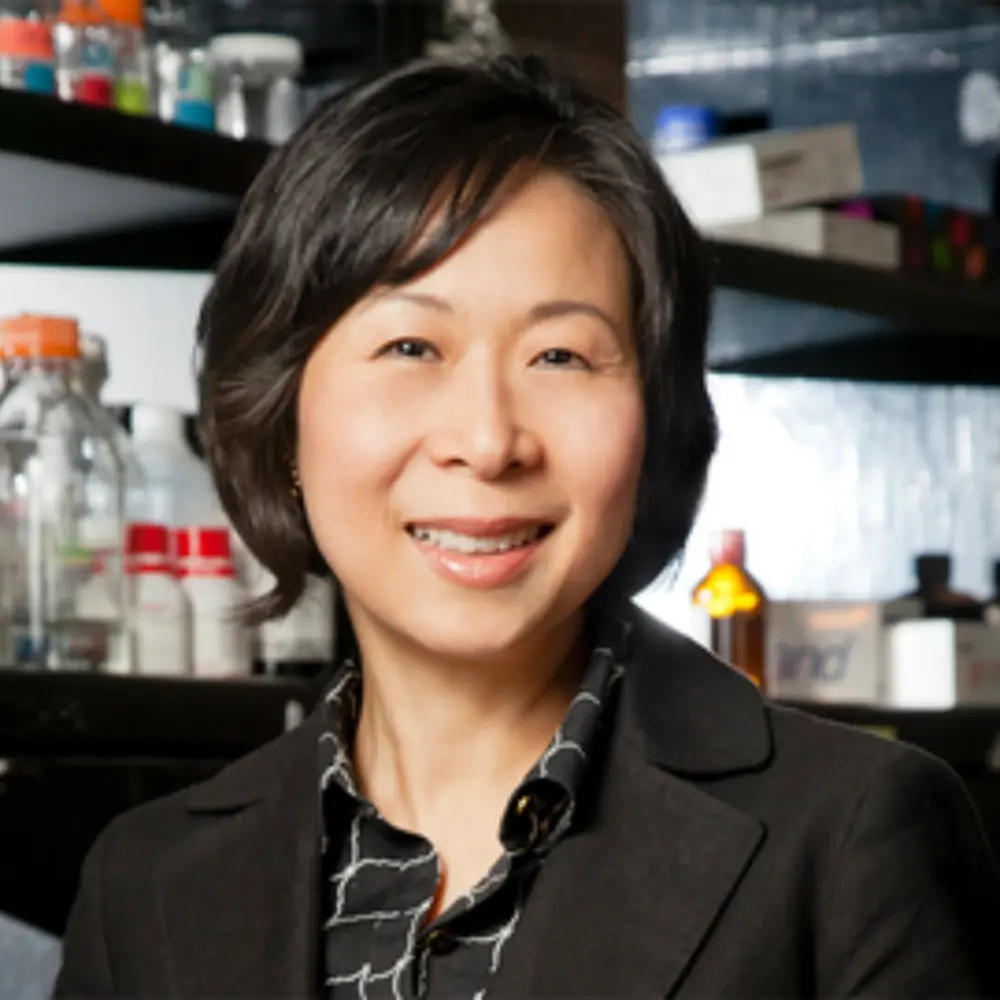
Dr. Kemper is Professor Emeritus of Molecular & Integrative Physiology. Her lab focuses on metabolic signaling and epigenomic control of metabolism and energy balance.
How did you first get interested in science?
I was always interested in nature even when I was a young child. I was fascinated by how ants gathered in a mass like a micelle structure around a drop of ice cream (although it gave me goose pumps) or how leaves changed colors in the fall. I really wanted to know how these things in nature worked. In high school, I enjoyed and did very well in science courses.
When I had to choose a major in college, I had to decide which of my passions to follow: music or science. I came from a musical family – my father was a professor who taught piano at a university – so I grew up with constant music in the house. My three older sisters all majored in musical areas: voice, piano, and composition. My parents felt that three daughters in music was enough and encouraged me to go into science. So, I studied science at Seoul National University in Korea.
What drew you to the University of Illinois Urbana-Champaign (UIUC)?
Interestingly, several of my older friends who graduated from Seoul National University were alumni of the Department of Molecular & Integrative Physiology at UIUC and spoke very highly of the graduate program. When family considerations brought me to UIUC, I was very happy to have the opportunity to undertake my graduate studies in MIP.
What led you to your research area during your Ph.D.?
The faculty of MIP had diverse research interests and several areas interested me. A key experience was attending a seminar given by Dr. Byron Kemper on the research he had done on his sabbatical year at the National Institutes of Health. He had studied the role of chromatin structure in the gene regulation by DNase 1 hypersensitivity and in vivo footprinting approaches. I found trying to understand how genes are regulated to control cellular physiology very fascinating, so I joined Dr. Kemper’s lab for my Ph.D. studies and have continued to study gene regulation ever since then.
How did your doctoral and post- doctoral experience shape your research career?
In my doctoral studies, I studied the gene regulation of cytochromes P450 in drug metabolism, and in my postdoctoral studies in labs of Dr. David Shapiro, here at UIUC, and Dr. James Whitlock at Stanford University, I studied the role of nuclear receptors in gene regulation.
To begin my independent studies, I combined the nuclear receptor experience with that of the P450s, to examine the nuclear receptor regulation of the P450 CYP7A1, which catalyzes the conversion of cholesterol to bile acids. This first study evolved into my present research on the transcriptional regulation of bile acid and lipid metabolism and its dysfunction in diabetes, obesity, and liver disease.
Looking back, what do you think your favorite research finding was?
This is a difficult question because there are many favorites. My earlier studies revealing the posttranslational regulation of nuclear receptor function in physiology and its dysregulation in obesity (published in Cell Metabolism and EMBO Journal) are near the top of the list.
However, probably my favorite is the study showing that autophagy is regulated by the feeding-sensing nuclear receptor FXR (published in Nature). Autophagy, meaning self-eating, is a fundamental biological process that is critical for cellular homeostasis and its dysfunction is associated with many diseases, including metabolic disorders, neurological disease, and cancer. Autophagy had been considered as a stress response under extremely stressful conditions like starvation, but we demonstrated that autophagic regulation occurs during the normal physiological feeding/fasting cycles to maintain energy balance and that long- term transcriptional control by FXR is important for its sustained regulation.
Further, this study was the foundation of several important following studies in my lab. Because this research finding provided new insights into the autophagy regulation and raised interesting new questions for further research, I would have to say this is my favorite.
Do you have any advice for young scientists and trainees?
Nature doesn’t yield its secrets easily. For every successful experiment, there will probably be many preliminary and failed experiments. Rather than being discouraged by failures, we need to step back and think why it didn’t work. Often, we learn more from “failed” experiments than successful ones. In choosing your research topic, it is important to follow your passions to give you the drive to persevere through the bad times to be successful. If you do, being the first to understand something new about how nature works and possibly to develop an approach to improve human health are extraordinarily rewarding.
What do you enjoy most outside of your research?
I enjoy time with my family, especially talking about food with my sister and daughters. I also enjoy hiking and gardening with my husband and listening to classic music and watching K-drama. I also enjoy traveling –one of the fun things to do in science is traveling to meetings at interesting places. I hope to enjoy golf after retirement – I started taking lessons and it is already obvious that it will take the same passion and perseverance that I have for science to succeed at golf!
